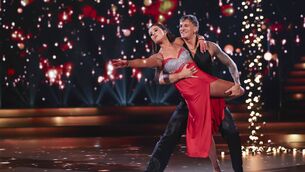Culture That Made Me: Phil Coulter on Derry, Van the Man, and swinging London

Phil Coulter's fingerprints are on legendary songs such as Luke Kelly’s rendition of Scorn Not His Simplicity, Planxty’s albums and, of course, the anthem Ireland’s Call.
Phil Coulter, 79, grew up in Derry City. In 1965, he partnered with Bill Martin in London to form one of the most prolific songwriting duos in music history, creating hits for Cliff Richard and Elvis, amongst other stars. Back home in Ireland, his fingerprints are on legendary songs such as Luke Kelly’s rendition of Scorn Not His Simplicity, Planxty’s albums and, of course, the anthem Ireland’s Call. His autobiography Bruised, Never Broken is published by Gill Books.




